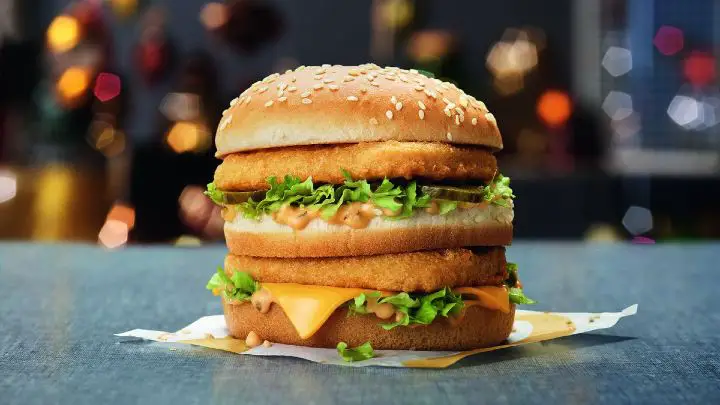Sunflower seeds are a delicious and nutritious snack that can be enjoyed on their own or added to salads and other dishes. They’re full of protein and calories, and they’re also a good source of vitamin E and manganese.
But how many calories are in sunflower seeds? You’ll find out. First, let’s take a look at what sunflower seeds are.
What Are Sunflower Seeds?
Sunflower seeds are a type of seed that comes from the sunflower plant, Helianthus annuus. These tiny seeds are small and flat with a papery coating that can be removed by soaking them in water for a few minutes.
Sunflower seeds can be eaten whole as a snack or used as a topping for salads or cooked vegetables. The seeds are also popular in baked goods such as bread and muffins, granola, and cereals.
SEE: Here’s How Long You Can Keep Your Foods Safe And Fresh
Calories for Sunflower Seeds
The calorie content of sunflower seeds varies by type. According to the US Department of Agriculture (USDA) Nutrient Database:
1 ounce (about 1/4 cup) of raw sunflower seeds with hulls has about 204 calories.
1 ounce (about 1/4 cup) of hulled sunflower seeds has about 162 calories.
1 ounce (about 1/4 cup) of hulled, roasted sunflower seeds has about 186 calories.
So if you’re looking for a healthy snack to keep you satisfied throughout the day and give you energy for exercise, try popping some sunflower seeds in your mouth.
Other Nutrients in Sunflower Seeds
Fats
Sunflower seeds contain about 14 grams of total fat per serving. This is a mixture of monounsaturated fat (which helps reduce the risk of heart disease) and polyunsaturated fat (which helps lower cholesterol levels in the body).
Copper
Sunflower seeds contain copper, which is an essential trace mineral that’s required for the proper functioning of several important biological processes. It plays a role in the formation of red blood cells and helps prevent anemia by aiding in iron absorption from foods.
SEE: The Latest Jimmy John’s Allergen Menu
Vitamin E
Sunflower seeds have high amounts of vitamin E, which helps keep your skin looking young and healthy. Vitamin E is an antioxidant that helps fight free radicals, thereby helping your body fight against cell damage.
Fiber
Sunflower seeds contain a significant amount of dietary fiber. A mere quarter cup of shelled, dry-roasted sunflower seeds contains 3 grams of fiber, which can help keep you full longer and promote digestive health.
Manganese
Manganese is another essential trace mineral in sunflower seeds, where it acts as an antioxidant that protects cells from free radicals. It is also vital for bone strength and growth as well as healthy skin and hair.
Protein
Sunflower seeds have over 7 grams of protein per 1-ounce serving. This is more than the amount in both almonds and peanuts. Sunflower seeds also contain alpha-linolenic acid (ALA), which is an important building block for cell membranes in the body.
Phosphorus
Sunflower seeds contain high amount of phosphorus. Phosphorus works with calcium to build bones and teeth while helping to regulate cell growth and energy production throughout the body.
Magnesium
Magnesium is an essential mineral that plays a huge role in many body processes, including muscle contraction and bone formation. It also helps regulate over 300 enzymes that help facilitate cell metabolism and growth.
Iron
Sunflower seeds are an excellent source of iron, which keeps blood flowing smoothly so you can stay healthy.
SEE: How to Get Free Food At Wendy’s
Side Effects of Sunflower Seeds
Diarrhea
The most common side effect of sunflower seeds is diarrhea. This is usually caused by consuming too many sunflower seeds in one sitting. If you eat too much at once, your digestive system may not be able to handle all the fiber, protein, and fat found in these seeds.
If you experience diarrhea after eating sunflower seeds, it’s important to drink plenty of water so that you don’t become dehydrated. You should also avoid taking any medications that can worsen diarrhea such as antibiotics or diuretics.
Weight gain
Eating too many sunflower seeds can lead to weight gain because they contain so much fat and calories. The high amount of fat and calories may also increase your risk for heart disease, stroke, and diabetes.
Nausea
If you consume too much of these seeds, you may experience nausea, which can be uncomfortable for you. If you want to avoid this problem, try eating smaller portions throughout the day instead of consuming large amounts at once.
Headache
Some people tend to get headaches after eating too many sunflower seeds. It is especially true if they have had no breakfast before eating sunflower seeds.
Allergic reactions
If you have an allergy to sunflower seeds, you may get hives or swelling in your mouth when you eat them. You may also develop difficulty breathing, stomach cramps, and diarrhea after eating the seeds.
If you experience these symptoms after eating sunflower seeds, contact your doctor right away. They can help determine if sunflowers are causing your reaction and prescribe medication if necessary.
SEE: Food Poisoning Signs You Probably Didn’t Know About
How Do You Eat Sunflower Seeds?
Eat them raw
The easiest way to eat sunflower seeds is raw. They are filling and satisfying; consequently, you won’t feel hungry for hours after eating them. Just crack open the shell with your teeth and enjoy the tasty kernels inside.
Make sunflower seed butter
Yes, you can grind your sunflower seeds into butter. To make sunflower seed butter, place raw seeds in a food processor and process until smooth. Add a pinch of salt if desired. Use this nutty spread on toast or in baking recipes, such as cookies or cakes.
Add them to salads for crunch and flavor
Sunflower seeds add crunch and texture to salads, especially when tossed with cooked pasta salad or potato salad. Use them in place of croutons or nuts for an extra boost of protein and fiber.
Boil them for snacks
Boil the sunflower seeds in water for about 10 minutes; drain well and serve warm as a snack. You can also serve the boiled seeds as garnishes on other dishes, like chicken salad or pasta salad.
Sprinkle over yogurt or oatmeal
Try sprinkling roasted sunflower seeds over plain Greek yogurt or oatmeal for added crunch and flavor. You can also use them as sandwich toppings, like on top of an avocado toast or a turkey burger bun with lettuce and tomato slices.
Roast them
Roasted sunflower seeds have a delicious roasted flavor that goes well with soups and salads (especially in tabbouleh). To roast your own, place the raw seeds on a baking sheet in an oven preheated to 350 degrees Fahrenheit for 10 minutes, stirring once halfway through roasting time.
Sprinkle over roasted vegetables
To add some extra flavor and texture to roasted vegetables, sprinkle some sunflower seeds onto the baking sheet before roasting them in the oven. You can also mix them into pesto or chimichurri sauces for a nutty flavor boost in your dishes.
Use them as an ingredient in baking recipes
Ground sunflower seeds make a great flour substitute for bread, muffins, and other baked goods that need some crunchiness. Add them to your favorite dough recipe in place of regular flour (1/4 cup per loaf). You’ll get an extra boost of protein while keeping your bread moist and flavorful.
SEE: Mussel Nutrients That You Probably Didn’t Know About
FAQs
Can you gain weight from eating sunflower seeds?
Yes, you can. If you eat too many sunflower seeds, you may gain weight. If you don’t want to gain weight from eating sunflower seeds, try sprinkling them on salad or yogurt instead of eating them out of hand.
How many sunflower seeds should you eat?
One ounce per day. According to the Academy of Nutrition and Dietetics (AND, most people should limit their intake of sunflower seeds to about one ounce per day (28 grams).
This is because most sunflower seeds contain between 160-210 calories per ounce — more than twice as many calories as most fruits or vegetables.
What happens if you eat too many sunflower seeds?
If you eat too many sunflower seeds, your body will be overloaded with fat and calories from the seeds. This could cause weight gain and digestive issues like bloating or diarrhea.
Another concern with eating too many sunflower seeds is that they contain phytic acid. Phytic acid can prevent your body from absorbing some important nutrients like iron and magnesium. It also interferes with enzymes that break down starches into sugar during digestion.
Conclusion
So how many calories are in sunflower seeds? Believe it or not, about 162—210 per ounce. So if you’re trying to lose weight, watch out for these little guys.
But if you’re trying to gain weight—they’re perfect for snacking on when you need a quick boost of energy throughout the day. They also contain other nutrients like copper, magnesium, and iron, which are important for healthy blood cell production.
Thanks for reading.
Visit Cheffist to learn more about seeds and nuts.







